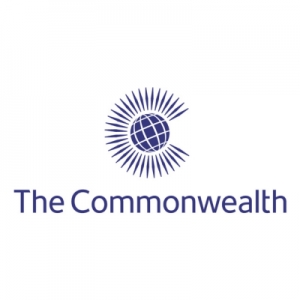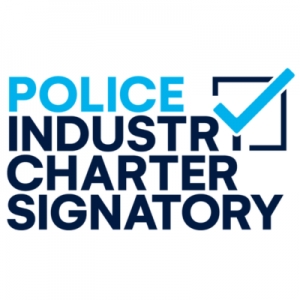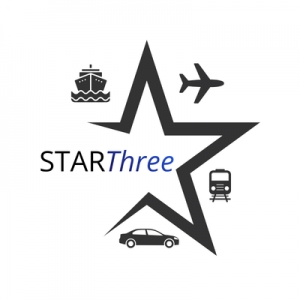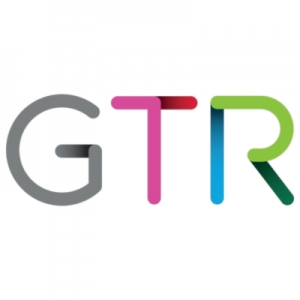Malikshaw Interim
The Interim Mindset and the 90 Day Horizon
Interim leaders step into complex environments at moments when clarity and momentum are urgently needed. They do not have the luxury of long runways or extended discovery phases. Instead, they work with a mindset shaped around a 90 day horizon.
Ninety days is not a strict rule. It is a way of thinking that sharpens focus, accelerates decision making and ensures impact. It is long enough to deliver meaningful change and short enough to maintain urgency. It also aligns naturally with how most organisations already plan and report.
This is what the interim mindset looks like in practice.
A Mindset Built on Purpose and Urgency. Interims arrive without political baggage or internal loyalties. That neutrality gives them clarity, but it does not mean they hang back. The best interims step forward quickly, establish credibility and bring an objective view of what is really happening. They are outcome focused. Permanent leaders often have the space to explore possibilities. Interims focus on what must be achieved in the time available. This creates discipline around prioritisation and a strong bias for action. And they are comfortable with ambiguity. Interims rarely walk into tidy briefs. They are brought in because something needs stabilising, accelerating or fixing. Ambiguity is simply the starting point. The mindset treats uncertainty as information, not a barrier.
Why 90 Days Works
A 90-day window allows for diagnosis, intervention and embedding change without drifting into long term transformation cycles. It is a realistic period for shifting behaviours, improving processes or stabilising a team. It also keeps momentum high. Ninety days prevents drift, over analysis and organisational inertia. Everyone stays focused on what matters most. And because most organisations already think in quarters, the 90-day horizon fits naturally into reporting cycles and leadership expectations. It feels familiar, even when the work being done is anything but.
"If you thrive in ambiguity, you're already thinking like an interim."
Does This Sound Like You?
• You prioritise instinctively. You know what matters, what does not, and what can wait. You are not reckless, but you do not get stuck in the weeds.
• You move. You do not wait for perfect information or perfect conditions. You create progress and clarity through action.
• You read people quickly. You understand who influences what, where resistance will come from and how to bring others with you.
• You communicate simply. You strip away noise, focus on outcomes and make it easy for others to understand the path ahead.
• You stay emotionally steady. You can walk into a room full of tension, uncertainty or fatigue and still operate with calm, confidence and perspective.
• If these habits feel familiar, you are already thinking like an interim.
Avoiding the Common Traps
Even experienced interims can be pulled into business as usual, especially when teams are stretched or overwhelmed. The interim mindset resists that pull. It keeps the focus on the mandate, not the noise.
It also avoids the temptation to fix everything at once. Interims know that trying to solve every problem dilutes impact. They choose the levers that matter.
They stay connected to more than one sponsor. They understand the political landscape and avoid becoming dependent on a single voice.
And they never assume that change will stick on its own. They document decisions, coach internal leaders and make sure the organisation can sustain progress long after they have stepped away.
What This Mindset Means for Clients
Clients who understand the 90-day horizon get more from their interim talent. They provide clarity of mandate so the interim can move quickly. They open doors to people and information so momentum is not lost. They offer visible sponsorship, so the interim has the authority to act. And they create space for challenge, so the organisation benefits from fresh perspective.
When clients and interims align around a 90-day horizon, results follow.
At Malikshaw, we work with interim leaders who think and operate this way every day. If you want this kind of focus, pace and impact in your organisation, we would love to talk.
________________________________________
The Commonwealth Secretariat
The intergovernmental organisation which co-ordinates and delivers much of the Commonwealth's work, supported by a network of more than 80 organisations.
Malikshaw Signs the Police Industry Charter
Malikshaw is delighted to share that we have signed the Police Industry Charter. This step reflects our ongoing commitment to working constructively with UK policing and the wider technology community. It gives us a clear framework for collaboration and helps us continue building relationships based on trust, transparency and shared purpose.
The Police Industry Charter has been created to set foundational principles upon which industry partners and UK policing collectively agree to adhere to. The Charter purpose is to:
- Bring all of policing and industry closer together in strategic partnership.
- Promote open dialogue on evolving challenges and opportunities.
- Expand opportunities for reciprocal leadership development.
- Increase Return On Investment for products and services developed.
- Increase opportunities for policing to develop critical skills in collaboration with industry subject matter experts.
- Adopt the principle of system and product interoperability in core design principles.
- Support policing in harnessing science and technology to create efficiency and capacity.
- Create transparency in the police and industry relationship.
- Support a local and national approach.
- Encourage reciprocity to principle adherence.
We look forward to building on our strong partnerships with police forces nationwide. The full charter is available to read here.
Interim Momentum: Why Professionals Are Making the Shift
The UK transformation market is moving at a pace we haven't seen in years. Organisations are under pressure to deliver change, but they're doing it with leaner teams, tighter budgets, and far more scrutiny. In that environment, interim and project based talent have become essential, not as a fallback, but as a strategic resource.
For experienced professionals, this shift is opening doors that simply didn't exist a few years ago. The interim market is animated, full of movement, and increasingly shaped by people who want more control over how they work and where they make an impact.
What's driving this momentum is not just economic uncertainty, but a deeper structural change. Transformation is now delivered through discrete programmes, rapid interventions, and specialist capability that can be deployed exactly when it's needed. Organisations want people who can land quickly, diagnose what's happening, and move delivery forward without the long onboarding cycles of permanent hires.
For many professionals, that environment is energising. Interim work offers the chance to step into complex situations, apply hard won experience, and see the results of your contribution far more directly. It also creates a different kind of career trajectory. One built on variety, challenge, and the cumulative value of each assignment.
As one transformation leader put it,
"A portfolio of high impact assignments can accelerate your career more than years in a single organisation."
It's a sentiment we hear often. The professionals thriving in today's market aren't chasing titles; they're building a body of work that demonstrates adaptability, breadth, and the ability to deliver outcomes in different contexts.
This shift is also changing how people think about long term planning. Careers are becoming more fluid, more intentional, and more shaped by the opportunities people choose rather than the structures they inherit. Reputation, clarity of value, and the ability to articulate your impact matter more than ever. And with the right support, interim work becomes not just a contract choice, but a strategic career move.
The key is positioning yourself well. Staying visible. Staying connected. Working with people who understand the nuances of the market and can help you navigate it with confidence. The opportunities are there — and they're growing — but the professionals who benefit most are the ones who approach interim work with purpose.
Interim isn't replacing the traditional career path. It's expanding it. For those at a pivotal moment, it offers momentum, autonomy, and the chance to shape a career on your own terms. If you're exploring what comes next, this may be exactly the moment to consider it.
To explore whether interim is your next move, get in touch with the Malikshaw team.
When Plans Change
When Plans No Longer Matter: Shackleton and the Leadership That Saved Everyone
In January 1915, Ernest Shackleton's ship Endurance became trapped in the Antarctic ice.
At first, there was optimism. The ship was strong. The crew was experienced. The plan was clear: cross Antarctica on foot, completing the first land crossing of the continent. Shackleton had assembled a team of specialists, secured funding, and prepared meticulously.
Then the ice did not relent.
For months, Endurance drifted, locked fast, until the pressure finally crushed her hull. The ship sank. The mission was over.
What followed is one of the most remarkable leadership stories in history.
Shackleton never crossed Antarctica. He failed completely at the objective he set out to achieve. And yet, every single member of his crew survived.
That outcome was not luck. It was leadership.
The critical moment came when Shackleton made a quiet but decisive shift. He abandoned the original goal entirely and replaced it with a new one: everyone gets home alive. From that point on, every decision, every routine, and every role was designed around that single purpose.
In modern terms, Shackleton reframed the transformation.
He understood that clinging to a plan that no longer matched reality was the greatest risk of all. Success would no longer be measured by delivery, milestones, or achievement of the original vision, but by stewardship, judgement, and care for people under extreme conditions.
This shift was not communicated with speeches or slogans. It was demonstrated through behaviour.
Shackleton redefined roles constantly, moving people between tasks to keep morale high and prevent hierarchy from becoming brittle. He created routines where none were required, insisting on shared meals, structure, and discipline even when there was no obvious operational need. He kept people occupied not because the work was urgent, but because purpose matters when certainty disappears.
Perhaps most importantly, he never allowed despair to settle. Shackleton absorbed anxiety upward, shielding his team from the full weight of uncertainty. He projected calm, consistency, and belief, even when privately he knew how precarious their situation was.
There was no transformation programme. No framework. No playbook.
But there was absolute clarity of purpose, deep understanding of people, and an ability to adapt leadership style to circumstance.
In organisations today, January often feels similar in a quieter way. Plans agreed months earlier collide with reality. Funding tightens. Assumptions unravel. Leaders inherit complexity they did not design and are judged on outcomes they cannot fully control.
The temptation is to double down on the plan. To push harder. To demand delivery.
Shackleton's story offers a different lesson.
When the environment changes fundamentally, leadership is not about forcing progress against outdated objectives. It is about redefining success, protecting capability, and ensuring people emerge stronger and intact.
That does not mean abandoning ambition. It means understanding timing, context, and consequence. It means recognising that the real measure of a leader is not whether the original plan survives, but whether their people do.
The Endurance never made it home. Shackleton's reputation did.
More than a century later, his expedition is remembered not as a failure, but as a masterclass in leadership under pressure.
As the year begins, that may be the most relevant transformation lesson of all.
Your Interim Candidates Are Paying Attention
Interim placements are becoming an increasingly popular choice for experienced professionals who want to make a meaningful impact quickly. These individuals are confident in their skills, selective about where they work and very tuned in to the signals an organisation sends. They notice the tone of your job brief, the clarity of your expectations, the way you communicate and how smoothly your onboarding runs.
That is why employer branding and candidate experience matter just as much for interim roles as they do for permanent ones. In some cases, they matter even more.
"Interim professionals may only be with you for a short time, but their impression of your organisation lasts far longer."
If you hire interim talent, or if you are an interim professional reading this, see if any of this feels familiar.
A strong employer brand is not about polished slogans or glossy videos. It is about how your organisation shows up in every interaction. Interim professionals want to understand what they are stepping into. A clear mission and set of values help them get their bearings quickly. When the job brief, the interview conversation and the onboarding all feel aligned, it builds trust. When they don't, people notice.
Reputation matters too. Interim networks are small and people talk. A great experience becomes a recommendation. A poor one becomes a warning.
"Clarity builds confidence, and confidence attracts better talent."
Candidate experience plays a huge role in interim success. The process often moves quickly, but that does not mean it should feel rushed or chaotic. A smooth application process shows respect for a candidate's time. Clear communication prevents misunderstandings. A structured onboarding, even for a short assignment, helps people hit the ground running.
And once they are in the role, engagement matters. Interim professionals want to feel included, informed and appreciated. When they do, they bring energy and ownership to the work.
"Engaged interim professionals do more than complete tasks. They elevate projects."
Clients who invest in their brand and experience see immediate benefits. They attract higher quality interim talent, reduce dropouts caused by confusion or delays and build long term relationships with professionals who return because they trust the process. A great experience today becomes tomorrow's talent pipeline.
Interim professionals also benefit from evaluating employer brand before accepting a role. Clear communication, authentic values, a reputation for fairness and interviewers who are aligned in expectations are all strong indicators of a healthy environment where they can thrive. If you work in interim roles, you have probably felt the difference between an organisation that welcomes you properly and one that barely remembers you are arriving.
If you want to strengthen your employer brand, improve your candidate experience and secure the calibre of interim talent who deliver real results, talk to Malikshaw. We help organisations get this right every day, and we would be delighted to support you too.
AI Handles the Noise: People Handle the Stakes
It is tempting to think that modern recruitment is, above all else, a question of speed. Faster screening, quicker shortlists, shorter time to hire. In a market shaped by automation and constant demand, velocity is an easy measure of success.
Speed matters, of course. Technology can remove friction from many parts of the recruitment process, improving responsiveness and efficiency in ways that were not possible even a few years ago. But speed alone has never been the decisive factor in successful interim recruitment.
What matters most is what happens once the obvious candidates have been identified and the decision carries consequence. That is the point at which noise falls away, and human judgement becomes essential.
AI-supported tools are now commonplace across the recruitment market. They surface patterns in large candidate pools, automate scheduling, and support workforce planning with predictive insights. In the right hands, these tools increase visibility, consistency, and responsiveness, creating space for recruitment specialists to focus on what truly matters: understanding context, interpreting briefs, and considering the broader implications of each hire.
For clients engaging interim professionals, stakes are rarely abstract. Roles are often mission-critical: stabilising teams, delivering programmes, or providing expertise to fast-moving projects. Requirements can evolve quickly, and success depends on more than a checklist of skills.
This is where the most effective recruitment partners make the difference. They do more than match CVs to briefs. They anticipate what clients will need next, helping navigate complex organisational and public sector frameworks, and offering advice that stretches beyond immediate requirements. That foresight allows clients to make hires who can deliver now and adapt to what comes next.
The same perspective applies to interim professionals. In an increasingly automated market, candidates risk being assessed only against predefined criteria. Interim careers are rarely that simple. Specialist recruiters take a skills-first approach, evaluating both capability and potential. They help professionals understand where their experience will deliver the greatest impact, not just today but across future assignments.
Being able to have open, honest conversations about suitability is an essential part of this process. Not every assignment aligns perfectly with every candidate's strengths or ambitions. Guidance and context, rather than reactive placement, produce stronger outcomes for both clients and professionals.
Efficiency remains important, particularly when navigating structured recruitment frameworks in the public sector, where compliance and transparency are essential. But speed is not enough. Depth of knowledge, sector experience, and understanding skills in context are what turn efficient processes into successful hires.
Technology can handle the noise, but it cannot replace judgement, advocacy, or insight.
The most effective recruitment partners combine these elements. They are technology-aware, using tools to reduce friction and support decision-making. Their value lies in judgement, anticipation, and a deep understanding of skills, sectors, and people. They help clients think beyond immediate gaps, providing advice on workforce planning, capability development, and future skills needs. They bring the same depth of insight to interim professionals, ensuring opportunities are relevant, meaningful, and positioned for the future.
For organisations and professionals alike, the future of recruitment is not defined by automation alone. It is shaped by specialists who understand when efficiency matters, when insight matters, and when human judgement is essential. Malikshaw exemplifies this approach, delivering interim recruitment that works for today while preparing clients and candidates for what comes next.
Let us show you how judgement-led recruitment makes the difference
StarThree
Access high quality, professionally qualified and experienced specialist third party advisory support for a range of service requirements.
GTR Govia Thameslink
CCS RM6380
Providing sustainable and flexible workforce solutions for NHS and wider public sector organisations that meet both immediate and long-term needs covering a range of services.


